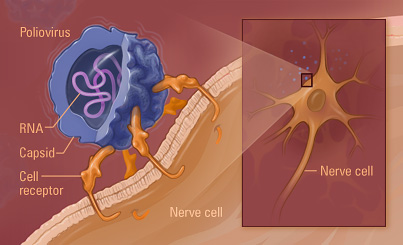Polio (also known as poliomyelitis), is an extremely contagious disease caused by a strain of virus called poliovirus (pronounced /'poo-lee-oh-mee-uhs). It is most commonly transmitted through direct contact with an alleged person, such as through the respiratory or gastrointestinal system. The virus enters the human body via the skin or mucous membranes. The virus spreads easily and quickly through the infected individual and results in paralysis, and/or death.
Although poliovirus is extremely contagious, it cannot survive for more than 24 hours without the ability to multiply. This means that if you come into contact with someone who is experiencing a case of poliovirus, you are at risk. If you are infected, you will experience flu-like symptoms, such as fever, headaches, nausea, vomiting, and muscle aches. It is important to note that these symptoms can vary between people with varying degrees of illness.
Most people with polio do not realize they are infected until they have severe symptoms and the virus has already damaged their immune systems. When a virus damages your immune system, it can cause other diseases as well. Poliovirus is so contagious that even if you recently got a flu shot and have not yet acquired poliovirus, you can still get the virus.
Because poliovirus is highly contagious, many people travel outside the country on a regular basis. Because of this, people who visit countries with poor health systems, including Africa, are at greater risk of contracting the virus, as well as people who travel to poor countries for the purpose of doing business, visiting family members, or traveling. like tourists.
In some countries, there is no access to Western medical facilities. These countries, including several African countries, have higher infant mortality rates and an increased risk of developing paralysis. In some cases, children with the condition do not receive the treatment they need to fight the disease until they reach their late teens. The only way to prevent this condition from occurring is through early detection and treatment.
Because of the effects of poliovirus on the immune system, it is important to know your vaccination status. There are certain vaccines that can help your body fight this type of virus and protect against its effects. Vaccines exist in the United States to protect against this type of virus. If you have been vaccinated, your chances of contracting the disease are greatly reduced.

To stay healthy, especially if you are traveling, it is important to keep up with vaccinations by regularly visiting your local health care provider. Make sure your vaccines are up to date and complete, and know which ones you may have. Be sure to also visit your local pharmacist for a dosage schedule.
Poliovirus is a serious virus but with treatment and care it is a very treatable disease. It can be stopped in its tracks, and you can get back to enjoying life as soon as possible. To learn more about what is poliovirus and its prevention, contact your local healthcare provider.
You should also know that there are many different options when it comes to fighting this disease. There are vaccines and medications, as well as natural cures, that have been shown to reduce the effects of this viral disease
With treatment and education you will be on your way to living your life to the fullest again. Remember, if you or a family member has been diagnosed with poliovirus, you can help reduce the spread of this disease through vaccination. If you or a loved one has questions, contact your local healthcare provider, and ask for further information.
The best way to live longer, stronger, and feel better than ever is to get vaccinated and stay healthy. If you need more information, please check with your local healthcare provider.